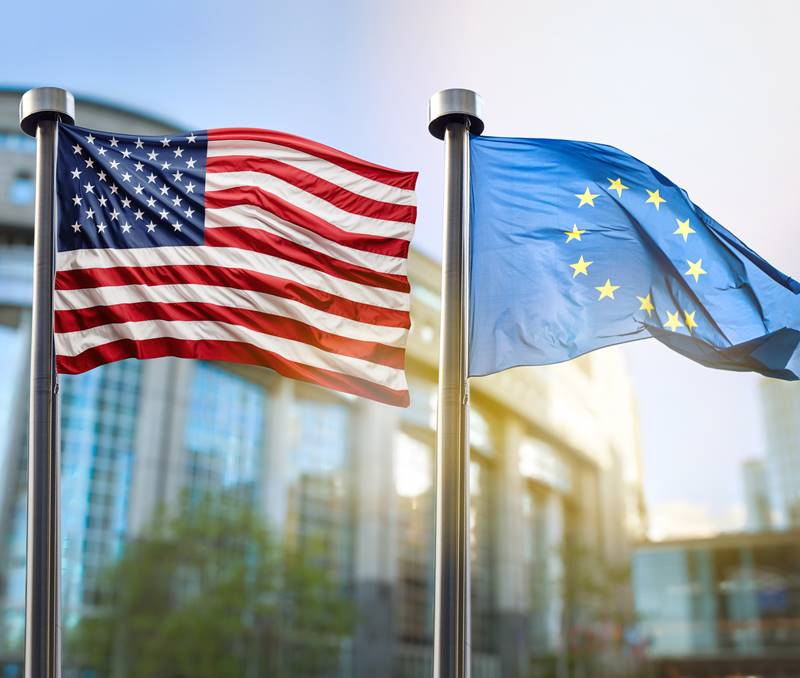USWTA Hopes for Wine Tariff Exemption
Industry experts fear that French cheese could face retaliatory tariffs
2024-11-13

The wine sector in the United States and Europe faces potential new trade tensions arising from the current political and economic climate between the U.S. and France. Although wine might avoid some punitive measures this time, the uncertainty remains significant.
The election of Donald Trump as President of the United States and France's decision to increase the digital services tax (DST) from 3 to 5 percent are the two main events straining relations. The tax primarily targets major American tech companies, and the Trump administration had already hinted at retaliation even before this hike.
The possibility of retaliatory measures is clear, with some analysts recalling unresolved issues between the United States and the European Union, like the Airbus-Boeing dispute. That conflict led to the imposition of tariffs on European wines in 2019. Nonetheless, Ben Aneff, president of the U.S. Wine Trade Alliance (USWTA), has expressed cautious optimism. Aneff believes that French wine may not become the focus of future U.S. responses.
Aneff's perspective is informed by past experiences. In 2020, during Trump's first term, a 100% tariff on Champagne was considered as a reaction to the French DST. The USWTA successfully argued that targeting French wine would harm American businesses more than French producers. Their efforts led the Office of the United States Trade Representative (USTR) to exclude Champagne from the tariffs.
Robert Lighthizer, a pivotal figure in those decisions, could return to a key role, adding a layer of uncertainty but also hope for the wine industry. Lighthizer, a close ally of Trump, is known for advocating "fair" trade rather than free trade, which could benefit the wine sector. Aneff points out that the wine trade between Europe and the U.S. is one of the few examples of balanced and tariff-free commerce.
Still, Aneff warns that European agricultural products could be targeted by the U.S. The USTR has accused the EU of making it difficult for American agricultural products, like beef, to access the European market. Aneff suggests that French cheese might be an easy target for new tariffs, while wine could be spared.
The American wine sector has consistently supported keeping European imports unrestricted. According to the USWTA, each dollar spent on European wine generates $4.52 in revenue for American businesses, due to a distribution chain that benefits importers, distributors, and restaurants. This economic benefit does not apply to goods like French perfumes or handbags, which are often sold by French companies within the United States.
The cultural and emotional impact of European wine is also a significant factor. Andrew Fortgang, owner of several restaurants in Oregon, emphasizes that wine and food are deeply intertwined. He says that consumers cannot simply substitute European wines with those from other regions, as the cultural experience cannot be replicated.
Meanwhile, Julio Alonso, executive director of Wines of Chile, sees a potential opportunity. If tariffs increase the price of French wines, American consumers might turn to Chilean options, like the Sauvignon Blancs from the Leyda Valley. Alonso describes these wines as offering a balance between minerality and freshness, falling between Sancerre and Marlborough, New Zealand.
Market data on French wine in the United States reveals some compelling trends. SipSource reports that French wines account for only 9.3% of total imported wine volume, trailing behind Italy and Australia. Most sales of French wines are for sparkling and rosé varieties, while reds from Bordeaux and Burgundy make up only 15.6% of the total. This translates to just one out of every 250 bottles sold in the U.S. being a French red.
Despite these dynamics, uncertainty prevails. Kate Laughlin, CEO of Martine's Wines, highlights that importers are not stockpiling inventory, as the financial risk of holding large quantities is too high without clarity on long-term tariffs. Laughlin mentions that the lack of predictability forces them to maintain close communication with European partners, hoping for answers that remain elusive.
For now, the wine industry continues to monitor each political and economic move, recognizing that stability and predictability are crucial for thriving in the global market.
Founded in 2007, Vinetur® is a registered trademark of VGSC S.L. with a long history in the wine industry.
VGSC, S.L. with VAT number B70255591 is a spanish company legally registered in the Commercial Register of the city of Santiago de Compostela, with registration number: Bulletin 181, Reference 356049 in Volume 13, Page 107, Section 6, Sheet 45028, Entry 2.
Email: [email protected]
Headquarters and offices located in Vilagarcia de Arousa, Spain.